- Home
- Douglas Niles
Fistanadantilus Reborn ll-2
Fistanadantilus Reborn ll-2 Read online
Fistanadantilus Reborn
( Lost Legends - 2 )
Douglas Niles
Douglas Niles
Fistanadantilus Reborn
Prologue
The River of Time is eternal, flowing inexorably toward a mysterious destination along a channel gouged by the continuing history of Krynn. A tide broad and stately over the course of decades, centuries, and ages becomes torrential and violent through other stretches of lives, generations, and years. Languishing within murky depths or churning around the obstacles that periodically constrict the flow into an angry catarac the current progresses-and millions of individual beings entangle, each bringing a tale with its own beginning, middle, and conclusion. Yet each, as well, is a part of the great river, an often indistinguishable mote in the onward rush of time.
It is the historian's task to place these widely disparate truths into context, to illustrate how the mote of a single life must inevitably blend into the great flow. Be it a tale of light or darkness, of great men or small, the historian's pen must record honestly and impartially the perception of the truth that is viewed through said historian's eyes.
Most often the droplet of an individual's story is swept along by the greater flow, contributing its almost imperceptible weight in ways that even the astute chronicler must struggle to perceive. These are the teeming millions of the world, and despite the relative insignificance of each individual, it is their collective mass that gives majesty to the current and power to its flow.
Occasionally, however, a speck of a specific life will develop a momentum of its own, setting a course that will have impetus far beyond its own weight. Such an individual will twist the motes around it, perhaps swirling into a deep eddy, even pulling much of the river into an isolated and powerful orbit. Sometimes it will dip below the surface, vanishing by all appearances, yet in fact creating a powerful vortex, with currents rippling far downstream.
But even such mighty waters, these mortal cataracts and whirlpools, cannot escape the confines of the river. Ultimately they, too, are swept by the relentless, unstoppable current that is time, until even the ripples have faded away, vanished as if they had never been.
In a sense, the historian's task is to demonstrate otherwise. He must draw these rivulets up from the past and reproduce them to one who would study the river's channel, who would try to understand even a small segment of the overall course. The diligent chronicler pushes through the murky depths, identifies the key strains, and finds at the bed of the river the firmament that provides the proof.
Of historians who are perceptive and capable of recording the truth there are many, though one in particular comes to mind at present. Of tales worthy of the telling, the same may be said. Though the river is wide, this is a channel of the current that has always held great fascination to all who would hear the history of Krynn, perhaps because this tale concerns a mortal who strove constantly to hold the frailties of mortality at bay.
And he very nearly succeeded.
Now I find it fitting that this historian, and this tale, should come together. It is a story of life and death, though not necessarily in that order, and of a man who stirred the River of Time like no one else. His passing, when it became known, was celebrated by all who knew of his villainy and his might. His return to life, conversely, was conceived and executed in secret, and bore with it the seeds of overwhelming terror for the future of the world.
Yet I precede myself-or, rather, I precede the telling. Let it be noted that the river must at first be observed in portions upstream from the main channel of our story, segments of time that will place our story in context. Those glimpses, naturally, have been selected by the chronicling historian. He knows, as do I, that the story in fact begins much closer to the great stream's headwaters, and that its currents will ripple farther, into cataracts that remain to be revealed.
But herein lies the heart of the tale.
From the Chronicles of Astinus,
Lorekeeper of Krynn
CHAPTER 1
A Seed of Survival
In the Name of His Excellency Astinus, Lorekeeper ofKrynn Notes Pertaining to events 2 PC-1 PC Scribed this Fourth Misham, Deepkolt, 369 AC
One of the greatest challenges in recording the story of Fistandantilus arises from the fact that he-and the arch-mage Raistlin Majere-caused the River of Time to divide for a period into two parallel channels. There are two versions of history, and though in many respects they are identical, in some significant aspects the flowage takes a decidedly different appearance between the two tales.
The divergence occurred a short time before the Cataclysm. In one history, Fistandantilus made preparations for his journey to Istar, where he would forge an alliance with a white-robed priest and cast his mighty spell of time travel. In the other course of the channel, Fistandantilus was mastered by Raistlin Majere, who had traveled from the future for the confrontation. It became the younger man's destiny to escape the Cataclysm, to befriend a priest, and to follow in the steps that (he learned too late) were ordained by destiny.
In either case, one hundred years after the Cataclysm there occurred an epic battle of magical power and violence, and the Dwarfgate War culminated in the massive destruction of Dergoth. In one current of history, Fistandantilus was killed here. In the other, Raistlin was banished to the Abyss-but there, too, it seems likely that the remnant portion of Fistandantilus met a matching end.
I shall focus this consideration of my research upon the time leading up to the confrontation. Raistlin and Fistandantilus were two entities before the melding of their lives by the magic that would so stir the River of Time. While the gods of Krynn and the Kingpriest of Istar moved ever closer to their inevitable clash, the Tower of Wayreth became the center of magical mastery on Ansalon, and the archmage Fistandantilus rose to the highest pinnacle of his power.
The elder wizard was the black-robed archmage, Master of the Tower of Sorcery, and-subsequent to his creation of the time-travel spell-Master of Past and Present as well. He had existed for centuries and scribed spellbooks that unlocked arcane secrets no mage before- or since, with one exception-would ever be able to grasp. Already Fistandantilus was widely known to be an ancient being. Even a study of elven lore must progress to the earliest volumes to predate him. Certainly for a long time prior to the Cataclysm he was the undisputed lord of magic upon Ansalon.
Central to his longevity, we now know, was the parasitical consumption of young lives-specifically, the blood and souls of the most skilled among his apprentices, those who were strong and who bore the seeds of magic deep within them. He harvested them as coldly as any butcher might a hog. The frequency of these cruel and murderous episodes is hard to judge, but it seems likely that he claimed a new apprentice's life at least every couple of decades.
Yet still the young men came to him, perhaps not quite believing in the horror stories they surely must have heard. They were drawn by ambition, knowing that he was the only teacher who could show them the secrets of true magical power. Desperate for the keys to this knowledge and to its attendant might, they traveled from far and wide to seek the great wizard. And indeed, many a black-robed sorcerer emerged from that tutelage with his life, if not his soul, intact, progressing to a reign of greatness and high influence in the world.
But there were many who never came out, who gave their lives to the archmage's insatiable hunger for young, vital hearts. And ever did the ancient one remain vibrant with eternal health, vigorous youth, and the greatest magic that the world had ever known.
And this brings us to Raistlin, whose mission has been well documented. In the aftermath of the War of the Lance, he journeyed into the past so that he could learn from,
and inevitably challenge, the archmage. He mastered the spellbooks of Fistandantilus and had the advantage of knowing the history that he would attempt to revise. Indeed, one of the ironies of Raistlin's story is that the man who was so determined to change the course of the river found instead that he was trapped into reliving one of the most violent and disastrous segments of the flow.
The contest between Fistandantilus and Raistlin would be a battle with enigmatic results, a cataract of the river that tumbles well beyond the bounds of my current research. However, on one thing, the archmage's notes provide impeccable confirmation. (Incidentally, this act occurs only on the historical path involving the confrontation with Raistlin; in the original occurrence, I assume that the life of some unfortunate apprentice was successfully consumed by the archmage.)
In any event, of the preparations made by Fistandantilus immediately before he attempted to devour Raistlin's soul, one sequence must be noted.
Perhaps it was because he sensed the great power of his adversary that he performed this enchantment. Certainly Raistlin was a potential victim who stirred a great hunger in Fistandantilus. At the same time, the villainous sorcerer needed to approach his newest conquest with a measure of respect. To this end, he took a precaution prior to his spell that was unique among the countless castings he had done before.
As usual, the archmage had several apprentices besides the young man of mysterious origins whom he had selected as his victim. The historically astute reader may well be aware that, prior to his soul-devouring ritual, Fistandantilus invariably discharged his other apprentices. The unchosen were sent from the tower immediately, with no awareness of how fortunate they had been. It has been documented-by both parties, in fact-that he did this prior to his attack against the disguised Raistlin.
The archmage's own notes detail his precaution, which required the use of a complex enchantment, a spell that he cast upon himself. It is a complicated procedure to understand, similar to the magic jar spell that allows a powerful sorcerer to place his soul, his spiritual essence, into some sort of object for a period of time, protecting the wizard, as it were, from the vicissitudes of the world.
In the case of Fistandantilus, this casting split his essence into an animate and inanimate portion, allowing his mortal self to remain intact, but preserving a precautionary reserve of his entire being. The potion embodied a portion of all his essences-mental, physical, spiritual, and arcane. This enchanted liquid he collected in a silver vial and bestowed upon one of his departing apprentices as a gift. Even at the time, according to the archmage's notes, he was not certain whether or not the magic worked.
Our current tale is not concerned with the history-shaping conflict between Raistlin and the archmage, although later we shall be peripherally concerned with the subsequent events regarding the Dwarfgate War and the convulsion of magic that would shape the mountain called Skullcap. For the time being, instead, we will follow the steps of this discharged apprentice, one Whas-tryk Kite of Kharolis.
Foryth Teel, In unworthy service to Gilean
CHAPTER 2
Whastryk Kite
1PC
First Palast, Reapember
The young magic-user tried to walk softly, to bring his smooth-soled boots soundlessly against the forest trail. But with each footfall came a whisper of bending grass or the tiny slurp of suction from moist, bare dirt. Once, when he raised his head to look through the brush before him, he carelessly cracked a twig, and the noise was like a lightning bolt stabbing through the silent woods and into his pounding heart.
He told himself that it should not be so, that his fear, his extreme caution, were illogical reactions to a danger that he had by now left safely behind. In fact, it was a threat that was probably imaginary. There would be no pursuit-indeed, he had been sent away from Wayreth by the master of the tower himself, and Fistandantilus was no doubt glad that young Whastryk Kite was gone.
But still he was afraid.
Nervously he cast a glance over his shoulder, along the tangled track of Wayreth Forest. The tower was invisible now, screened by the intervening foliage. That same greenery had parted invitingly before Whastryk, leading him away from the sorcerous spire and its two remaining occupants. The tower, with its arcane legacy and wonderful trove of magic, had been Whastryk Kite's home, as well as his school and the residence of his companions, for several years. Yet abruptly the course of all the apprentices' studies had come to an end. Now, as he suspected that he had left that place behind him forever, he felt a strange mixture of emotions.
Despite the midsummer warmth in the woods, when he thought of the pair of magic-users who still occupied that arcane spire, the young mage shivered forcefully enough to send ripples shimmering through the smooth silk of his black robe. What powers, he wondered, would be wielded by them before the issue was resolved?
And that resolution, Whastryk had come to suspect, would be the death of the young apprentice, the lone representative from among the archmage's pupils who had been selected to remain.
He shuddered at the thought of ancient Fistandantilus, the lean and wolfish man with the vitality and temperament of a caged feline. Whastryk had seen the hunger so clearly etched in his master's ageless eyes. The archmage craved something precious and vital from the young men who came to study at his table, to learn from his words. He lusted for their youth and vigor, and from one he would claim his very soul.
Whastryk had felt his master's hunger himself, had chilled to the knowledge that the elder's gaze seemed to penetrate to every fiber of his being. The touch of those eyes had been a terrifying sensation, yet strangely exciting and alluring as well.
Even now, as the discharged apprentice hastened away on the forest trail-even now, when he suspected that the chosen one was doomed, would quite possibly be dead before the sun rose on the morrow-Whastryk felt a surge of jealousy, of pure, raw hatred directed at the one who had been selected to remain.
Why had that apprentice, and not Whastryk Kite, been found worthy?
Bitter thoughts raged in the young mage's mind, and he felt again the familiar resentment, the knowledge that in every aspect of life, his lot was unfairly restricted. Orphaned and abandoned as a boy, he had survived on the rough streets of Xak Tsaroth by his wits and eventually by the knack for magic that had persuaded bigger, stronger thugs to leave him alone. Then Fistandantilus had summoned him to the tower, and Whastryk had seen things he could never have imagined. For his own benefit, he had learned to wield his power, an arcane might that would allow him to master many other men and further the causes of the Order of the Black Robe.
And yet he would have given it up for a chance to stay behind, to share the powerful-and undoubtedly lethal-enchantment of his master's greatest spell.
Still, the young mage carried a valuable legacy from the Tower of Wayreth. It was not a treasure in his pouch, a value in steel or even in arcane trinkets. It was the knowledge of magic, the memories of his master's teaching, that he now held in his mind. He was free, and that knowledge would be the key to great power among the world of humankind. Whastryk merely had to choose where he would go and how he would wield that power.
And he also had one memento of his tutelage in the library of Fistandantilus.
The magic-user's hand settled around the silver vial in his belt pouch, the treasure that his master had given him as a parting gift. The liquid within was clear, and his fingers could sense the unnatural coldness through the smooth metal of the tiny jar. He remembered the solemn sense of ceremony with which Fistandantilus had bestowed the treasure upon him.
And once more he wondered, Why me? The archmage had been secretive on that point, telling his young apprentice to save the potion, retaining it for all the years of his life, unless, at some point, Whastryk Kite was threatened with imminent and seemingly inevitable death. If he drank the potion at such a time, Fistandan-tilus had declared, then the magical liquid would insure his survival.
A rumble of thunder trembled throug
h the woods, and the black-clad mage paused. The tiny patches of sky visible between the dense canopy of leaves were invariably blue, and the sky had been cloudless when Whastryk had departed the tower barely two hours earlier. When the deep, resonant noise came again, the man knew: This thunder was born of magic, not nature. The source was the tall tower, the spire of sorcery that lay at the heart of Wayreth Forest.
Light flashed, a sparking glow brighter than the sun, penetrating deep among the trees with a cold, white glare. More thunder smashed, and shivers of force rolled through the ground. Whashyk stepped faster now, trotting, then running along the trail. His earlier regrets vanished, washed away by a wave of pure fear that-like the noise and the light-certainly emanated from that distant tower.
Winds lashed through the trees, hot blasts of air that bore none of the moist freshness of a rainstorm. Instead, this was a stinking, sulfurous gale, a wash of putrid breath that pushed him even faster along the trail. Lightning crackled with growing violence, and he shuddered under a clear impression that the sky itself screamed in raw horror. He heard a clatter, then felt a sharp stab of pain against his shoulder as black hailstones rattled through the trees, bouncing and cracking against the ground.
And then he was sprinting like the wind, driven by the force of his own terror. Branches lashed his face, and unnatural gusts tore at his hair, whipped his robe. It seemed that the two magic-users behind him, the tower, the woods, and the very world itself were being torn to pieces. If he slowed even a half pace from his full run, Whastryk sensed that the destruction would extend even to himself.
Finally the woods were gone. Wayreth Forest vanished into the mists over his shoulder, a place of his past. He was surprised to learn, at the first village he came to, that he was in the foothills of the Kharolis Mountains. After all, the magical forest had grown outside the great trading city of Xak Tsaroth when Whastryk had first encountered it. But he had heard that was the way of the enchanted wood. The worthy traveler did not find Wayreth Forest, so much as Wayreth Forest found the worthy traveler.

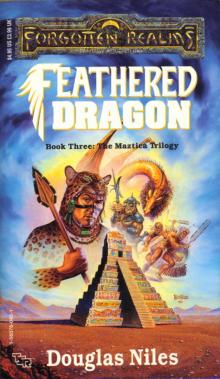 Feathered Dragon mt-3
Feathered Dragon mt-3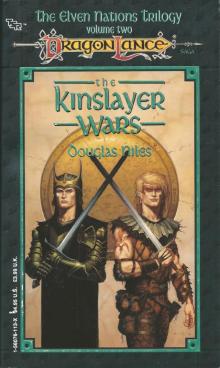 The Kinslayer Wars
The Kinslayer Wars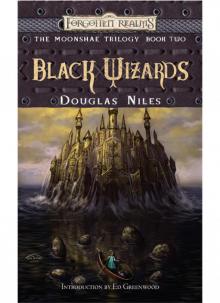 Black Wizards
Black Wizards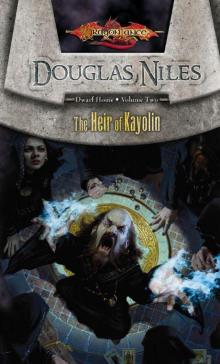 The Heir of Kayolin dh-2
The Heir of Kayolin dh-2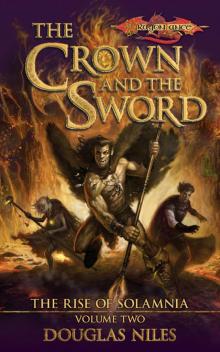 The Crown and the Sword tros-2
The Crown and the Sword tros-2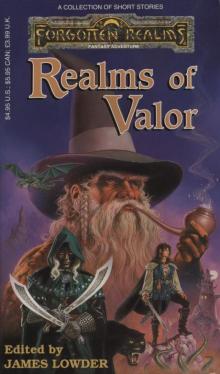 Realms of Valor a-1
Realms of Valor a-1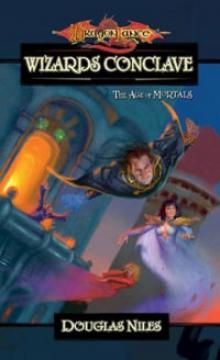 Wizards Conclave aom-5
Wizards Conclave aom-5 Fox On The Rhine
Fox On The Rhine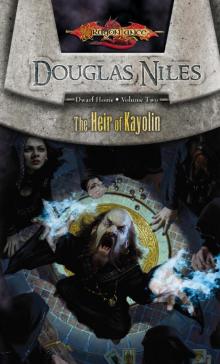 The Heir of Kayolin
The Heir of Kayolin Fox at the Front (Fox on the Rhine)
Fox at the Front (Fox on the Rhine)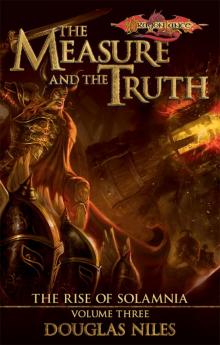 Measure and the Truth tros-3
Measure and the Truth tros-3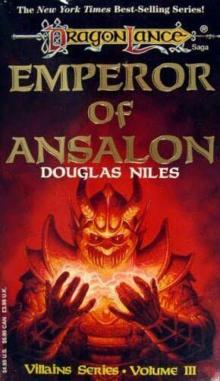 Emperor of Ansalon (d-3)
Emperor of Ansalon (d-3)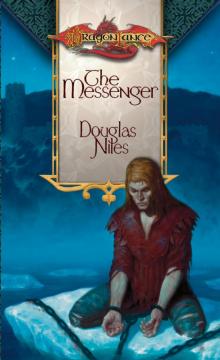 The Messenger it-1
The Messenger it-1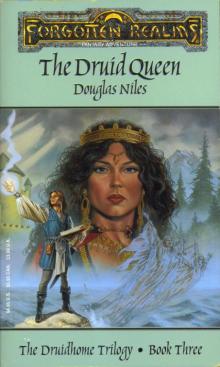 The Druid Queen tdt-3
The Druid Queen tdt-3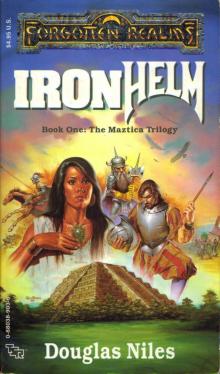 Ironhelm mt-1
Ironhelm mt-1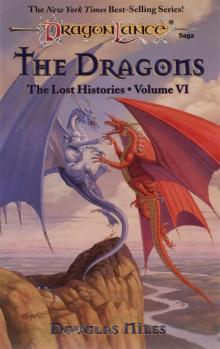 The Dragons lh-6
The Dragons lh-6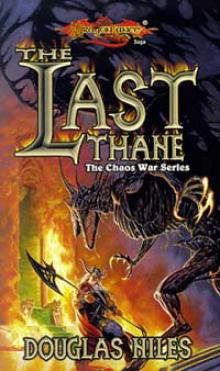 The Last Thane cw-1
The Last Thane cw-1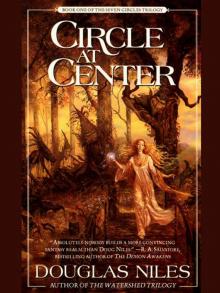 Circle at center sc-1
Circle at center sc-1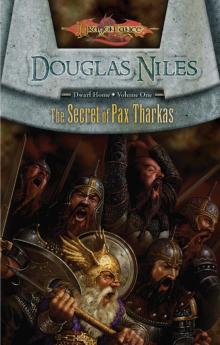 Secret of Pax Tharkas dh-1
Secret of Pax Tharkas dh-1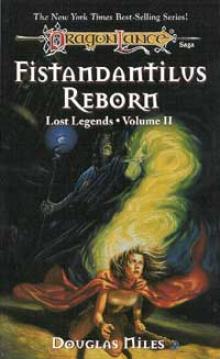 Fistanadantilus Reborn ll-2
Fistanadantilus Reborn ll-2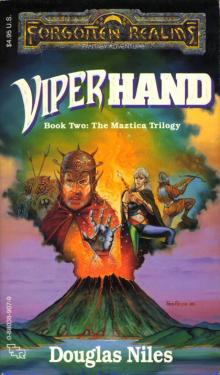 Viperhand mt-2
Viperhand mt-2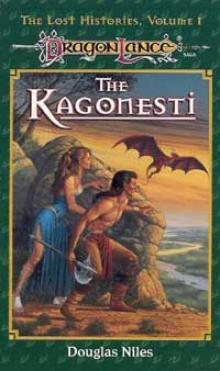 Kagonesti lh-1
Kagonesti lh-1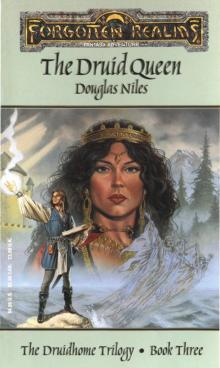 The Druid Queen
The Druid Queen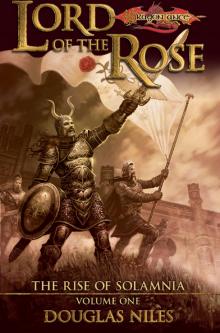 Lord of the Rose tros-1
Lord of the Rose tros-1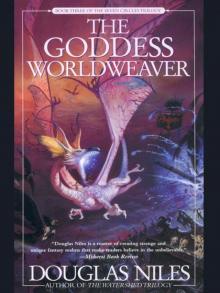 Goddess Worldweaver sc-3
Goddess Worldweaver sc-3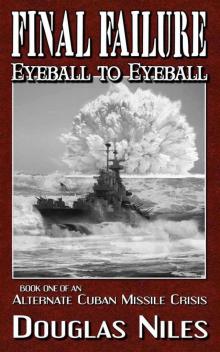 Eyeball to Eyeball (Final Failure)
Eyeball to Eyeball (Final Failure)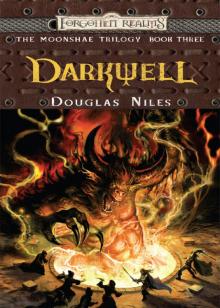 Darkwell
Darkwell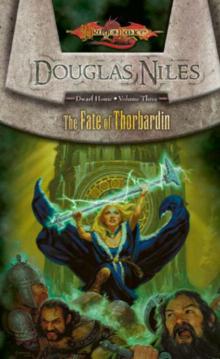 Fate of Thorbardin dh-3
Fate of Thorbardin dh-3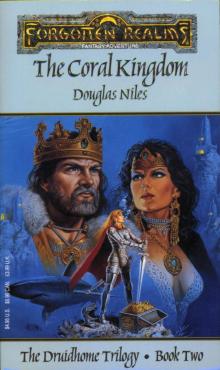 The Coral Kingdom tdt-2
The Coral Kingdom tdt-2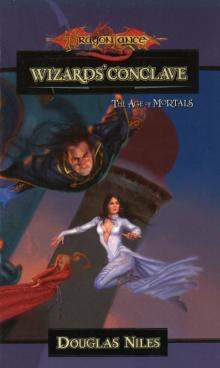 Wizard's Conclave
Wizard's Conclave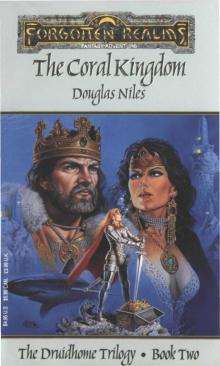 The Coral Kingdom
The Coral Kingdom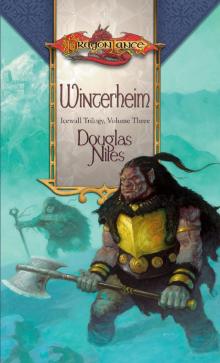 Winterheim it-3
Winterheim it-3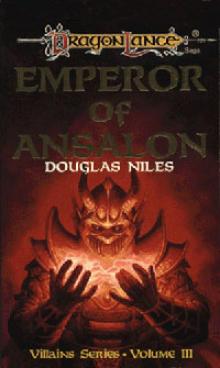 Emperor of Ansalon v-3
Emperor of Ansalon v-3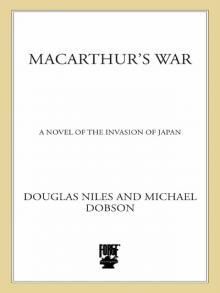 MacArthur's War: A Novel of the Invasion of Japan
MacArthur's War: A Novel of the Invasion of Japan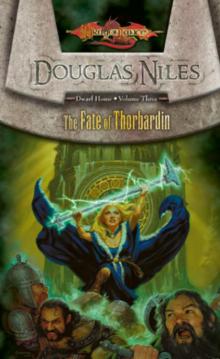 The Fate of Thorbardin
The Fate of Thorbardin The Rod of Seven Parts
The Rod of Seven Parts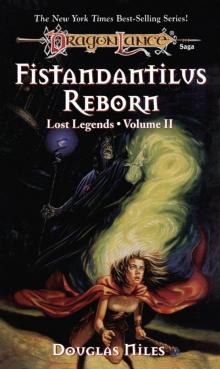 Fistandantilus Reborn
Fistandantilus Reborn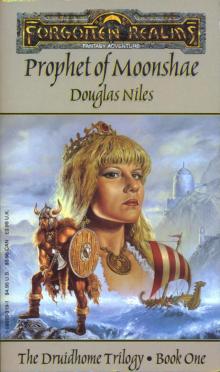 Prophet of Moonshae tdt-1
Prophet of Moonshae tdt-1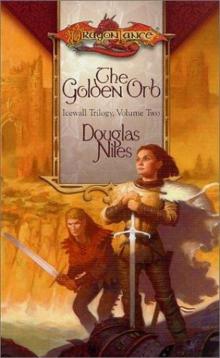 The Golden Orb i-2
The Golden Orb i-2